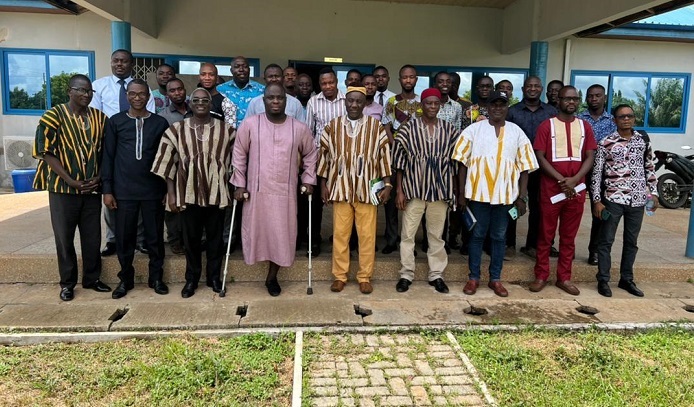
The National Development Planning Commission (NDPC) has organised a day’s regional workshop on the Dissemination of the 2020 District League Table (DLT) and pre-launched the preparation of the 2021 DLT here in Dambai yesterday.
It was in collaboration with the United Nations International Children Education Fund (UNICEF).
The programme was attended by Regional Development Planning officer (RDPO), Municipal and District Planning Officers (MDPOs), Municipal and District Social Welfare officers (MDSWOs) , Community Development Officers (CDOs), Civil Society Organisations (CSOs), the media and traditional authorities in the region.
The DLT was introduced in 2014 as a simple ranking tool for assessing, comparing and tracking development in Metropolitan, Municipal and District Assemblies (MMDAs) based on selected indicators.
Addressing the participants, the Director General (DG) of the National Development Planning Commission (NDPC), DrKodjoEsseim Mensah –Abrampa had observed that the DLT report complemented efforts to strengthen the National Monitoring and Evaluation (NME), and could be used to inform priorities, strategized and implement programmes.
Dr Mensah-Abrampa said decades of implementation of the decentralisation system targeted at improving resource allocation and provision of quality of service to bridge the wide disparities in the wellbeing among people at the various Assemblies had been plagued with challenges,thereby impeding development, which had resulted in significant segment of the population left behind in terms of development.
The DLT, the Director General of the NDPC pointed out that helped the government to gain better understanding of the status of citizens’ wellbeing across all the districts in the country, and also encourage best performing MMDAs to sustain their efforts, while worst performing district assemblies were identified and provided with the requisite support to address their challenges.
He continued that the DLT followed a bigger objective of generating action by the government and its MMDAs towards ensuring better prioritisation and equitable resource allocation, while engendering positive competition among MMDAs and stimulating good performance.
Dr Mensah-Abrampa opined that effective implementation of the decentralisation system was evidenced in undisputable service delivery and the establishment of platforms that promoted more equitable and efficient resource allocation and expenditures.
‘’It has become necessary to boost confidence at the MMDAs level through the provision of requisite basic results to improve human development and that was the more reason why the DLT has been institutionalised to improve evidence–based planning and further exact results from the implementation of District Medium -Term Plan (DMTP),” he added.
The UNICEF Representative, Mr Charles Dzradosi urged MMDAs to use the DLT to generate Social Accountability and promote citizens participation in decision making as well as monitoring of development investment at the local level, which he stressed could be further enhanced through greater fiscal decentralisation and improvement of District Assemblies to own and prioritise their own development agenda.
The Oti Regional Minister, Dr Joshua Makubu, noted that duty bearers and decision-makers goal was to improve the living standards and welfare of the people, stressing that the DLT should be seen as a call to action to accelerate efforts in the provision of services to the citizenry.
FROM SAMUEL AGBEWODE, DAMBAI







